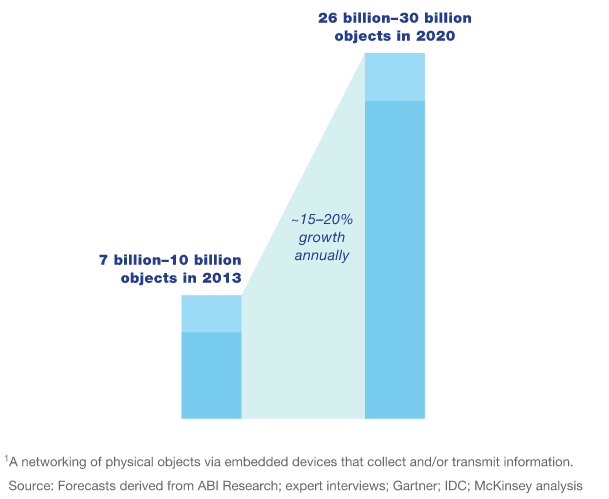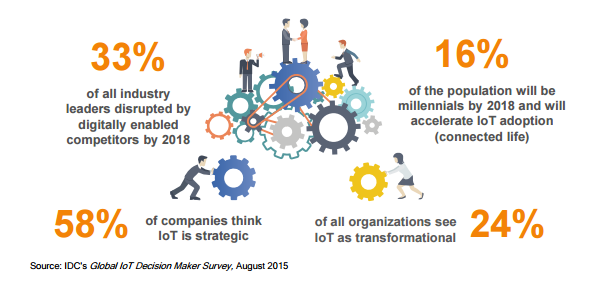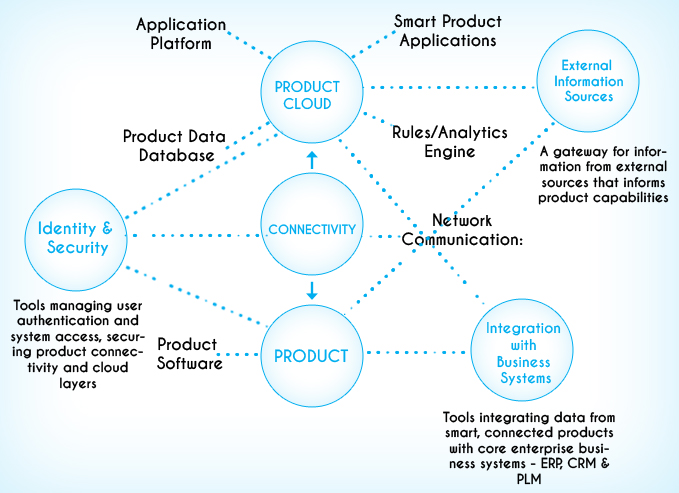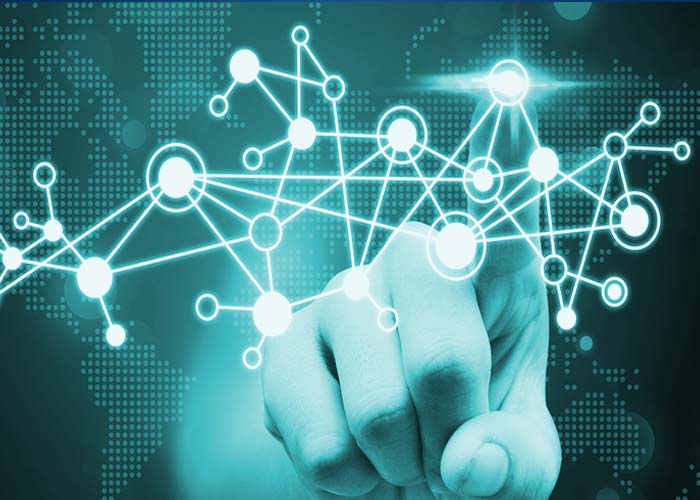Let's talk
Reach out, we'd love to hear from you!
About IoT
Internet of Things (IoT) is now more than a buzzword. Organizations across the globe have started to accept it as one of the most important technology trends that could shape their industry. IoT applications are numerous and diverse and vary from industry to industry. As per a report from Mckinsey, the IoT offers potential economic impact of $4 trillion to $11 trillion a year in 2025. IoT devices are projected to increase to 26-30 billion range in 2020.

Organizations that are focusing on IoT and are aware of issues and intricacies playing out in this domain stand to benefit immensely in the future. The benefits are not only from a financial point of view but also from strategic and operational perspectives. This is because IoT is going to change the fundamentals of business. At present we are only connecting a handful of devices to the internet and managing their communication. With IoT, almost each device will have the capability to communicate with other devices either directly or over the internet. This is going to bring major changes in business processes in the future. Thus it is essential that organizations start taking developments in IoT arena very seriously.
IoT is basically a network of interconnected things or devices which are embedded with sensors, software, network connectivity and necessary electronics that enables them to collect and exchange data making them responsive.
How IoT Will Change Business Landscape

An IDC report studies about how digital transformation is revolutionizing the modern enterprises. Titled ‘IoT and Digital Transformation: A Tale of Four Industries, the report highlights how 33% of global industries will be disrupted by 2018, and digital transformation is an urgent requirement in order to protect your business from threats of digitally enabled competitors.
It also states why global organizations are considering IoT to be a strategic tool of business scalability and how it is helping enterprises generate new and innovative user experiences.
Innovating the customer journey is the starting point of digital transformation. Enterprises face the challenge of shifting from traditional business models to a mass-market approach, which is hugely customer-centric.
The connected network demands companies to develop a completely new technology infrastructure. Harvard Business Review reports about a technology stack that involves multiple layers such as new product hardware, embedded software, connectivity, a product cloud consisting of software running on remote servers, a suite of security tools, a gateway for external information sources, and integration with enterprise business systems.
Disrupting Business Models
IoT helps build Smart Connected Products to provide new functionality, increased reliability, greater product utilization and product capabilities. These will disrupt business models at the core offering new opportunities for value creation and value capture. With the help of smart connected products, the entire industry will be reshaped or it will create new industries (Tesla, Uber etc. are technology enterprises and neither travel, taxi nor car manufacturers). Amazon, Google and DHL are experimenting with automated drones to revolutionize the entire logistics industry.

Enterprises that have kept pace with the new and evolving technologies have been successful. Let us take the example of Uber. Uber has disrupted the taxi market in several countries without even owning a single taxi. In the same way. we know the pursuits of Tesla, AirBnB etc.
Another major distinguishing factor is the time taken for such enterprises to churn out a billion dollar worth business.
Within a period of 3 years they have emerged as a billion dollar company. Likewise, it is expected that in future, these companies will be able to reach that size in a year itself
Clearly, these business models are evolving rapidly and can face competition from the unexpected areas. Industry limitations have been redefined and are rapidly fazing out. Take the example of John Deere. John Deere along with AGCO are collaborating farm equipments, irrigation systems, as well as soil/nutrient sources with vital information like weather, prices of crops, and commodity futures, in order to optimize farm performance. Therefore, instead of the products the different ecosystems are competing in the market. Enterprises acting as the product integrator and the suppliers with products/designs having huge impact over the entire ecosystem would gain competitive advantage and capture the disproportionate value.
Driving competitive advantages through IoT
Smart Connected products reflect a whole new set of technical possibilities that can assist organizations to gain a huge competitive advantage. A huge leap in the productivity will be generated through these products as these products communicate to organizations as and when they are being used. This creates an improved understanding of the product in live operation and can generate invaluable insights. For example, many engine manufacturers are using sensors to detect performance of these engines in real time and driving predictive maintenance decisions.

Disrupting value chain
Data is the core of value chain. Improved data insights helps enterprises take better decisions thereby enabling better value creation and data capture. Conventional methods involve data generation from internal operations and transactions across the value chain such as customer visits, sales interaction, supplier interaction, order management etc. Complementing this data is the insights gained from secondary research tools such as seminars, surveys, , events, market research etc. Different organizational departments analyse this data resulting in creation of data silos due to limited sharing of realized data on a regular basis.
Smart Connected Products generate real time data of diverse data types and in a huge volume. Thus the products can communicate with each other in an ecosystem. These interactions can be recorded and analysed through advanced analytics capabilities to generate extremely valuable insights. In order to fully extract the meaningful insight from vast amount of data that digital technologies are generating and IoT will generate organizations are looking to form a data strategy across organization. Firms are hiring CDOs to shape their data strategy. For example Ford Motor Company has recently hired CDO to inculcate smart connected products into organization for generating customer insights, realigning and restructuring business processes, shape future strategies with a view towards connected cars and many such changes across the value chain.
These data insights thus generated will provide an accurate feedback of the performance of the individual products and the entire ecosystem resulting in much better engineering and design solutions. This feedback will be important in improving value chain strategies and thereby resulting in evolving business models.
Is it the Time to be Intimidated?
If your organization is not keeping an eye on the recent digital technologies and initiatives it is high time to venture into that space. We are in a time where it is quite easy to disrupt as well as quite easy to get disrupted. Organizations must look at their current technology capabilities and bottlenecks and formulate strategy to move forward. Organizations must get their technology stack in place to brace the sudden impact that new technologies like IoT, AR, Blockchain, nanotechnology, SMAC etc. are going to bring. In order to survive the technological onslaught, the organizations must become “Digital Ready”. Being “Digital Ready” means having the proper Technology infrastructure in place to absorb multiple sources of data. In order to realize this, they must have a trusted technology partner with complete support from the leadership team. Rather than being fearful of the technology initiatives, it is time to embrace them.
